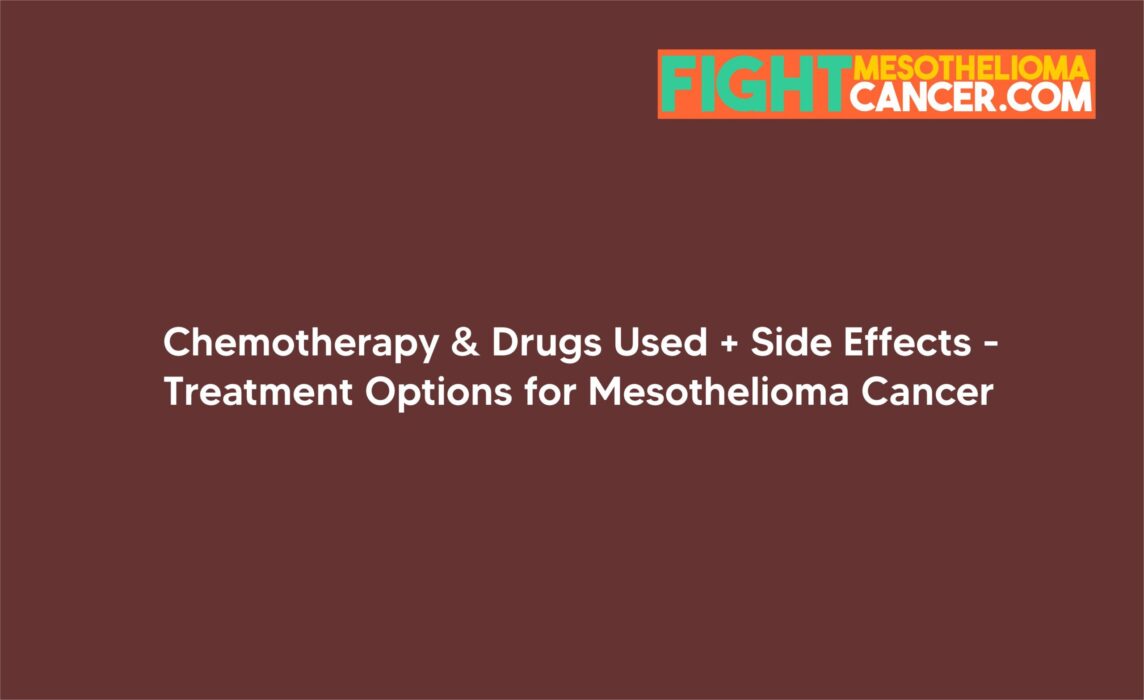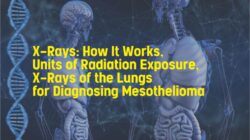Chemotherapy is the practice of using cytotoxic or anti-cancer drugs to destroy tumorous cells in the lungs. The mission of these drugs is to stop the growth & spread of cancerous cells by individually targeting each cell & destroying them.
Although chemotherapy cannot completely cure mesothelioma, it does prolong the life of the patient by several months and helps to reduce pain. This is known as palliative treatment and can significantly improve the life of the patient.
Chemotherapy is also usually given after a surgery. Examples of drugs used in chemotherapy treatments include Alimta (pemetrexed), doxorubicin, Vinblastine and mitomycin C, among others.
Chemotherapy was used in treating mesothelioma lung cancer since the 1940s. New research & advancements since then have introduced a variety of drugs that help in alleviating pain & increasing the quality of life for the patient.
Chemotherapy drugs are most effective when the tumorous cells are still young and have not grown; meaning they haven’t formed a solid tumor mass. It is a lot easier for chemotherapy drugs to permeate young tumors than solid tumor masses.
Most chemotherapy drugs will impair the growth of tumorous cells or program their automatic death. For instance, anti-angiogenesis drugs will halt the growth of blood vessels preventing tumor masses to form a pathway through which they will metastasize (spread) tumorous nutrients & oxygen to other organs of the body.
For instance, the image on the left is of the drug Avastin that when consumed, stops the growth of blood vessels through which tumorous cells will spread tumor cells to other organs in the body.
One of the oldest & most commonly used chemotherapy drugs include Cisplatin. Cisplatin is a platinum drug that comes in a group of three; including carboplatin and oxaliplatin.
Cisplatin reverses DNA programming in such a way to prevent rapidly diving cells from duplicating their DNAs and cause further cell division & growth.
And, Cisplatin can also be used in conjunction with other chemotherapy drugs such as Alimta (pemetrexed), Veglin and Oncocase. Here is a full list of chemotherapy drugs used for treating mesothelioma lung cancer:
- Carboplatin
- Cisplatin
- Doxorubicin
- Gemcitabine (Gemzar)
- Miltomycin C
- Permetrexed (Alimta)
- Raltitrexed (Tomudex)
- Vinblastine (Velbe)
- Vinorelbine (Navelbine)
The official body administering the research & development of these drugs is the National Institute for Health and Clinical Excellence (NICE). NICE also gives doctors guidelines & education on how to best use these drugs on their patients. These chemotherapy drugs may also be used as part of Cancer clinical trials.
Combination Therapy
These above chemotherapy drugs may be given as single, or simultaneously as two. This practice is known as “combination therapy”.
Side Effects of Chemotherapy Drugs
Just like any other drug, chemotherapy drugs come with their set of side effects. This is because whilst killing tumorous cells, they also reduce the normal amount of blood cells in the blood.
When cells in the blood are low, a patient can feel weak and may need a consistent dose of injection. Any infections will also be treated via anti-biotics. Common side effects include:
- Anemia (lower # of red blood cells)
- Vomiting
- Diarrhea
- Constipation
- Hair loss
- Feeling sick (nausea)
- Weakened immune system
- Increased risk of cardiovascular disease
When cancer occurs, tumorous cells in the body multiply beyond control. The purpose of chemotherapy drugs is to kill this multiplication but in the process, normal healthy cells may also get destroyed.
This causes Anemia and the cells that will most likely get affected include red blood cells forming in bone marrow and the digestive tracts such as stomach, mouth, intestines and esophagus.
It is also important to know that some drugs affect important organs in the body such as kidneys, heart, lungs, bladder and the nervous system. Therefore, before embarking on a chemotherapy treatment campaign, ask your doctors specifically what drugs he will provide you with, and its side effects. Here’s a list of useful questions to ask your doctor:
- How many treatments will I be given, or what combinations of drugs will I have to take?
- How will the drugs be given to me, via pills or injection?
- Where will my treatment take place? At my local hospital, at a clinical trial location, etc?
- How long will the treatment last?
Questions to Ask about your Side Effects
- What side effects are likely to occur with the drugs I’m receiving?
- What pain alleviating options are there?
- Are there certain side effects that I should report immediately to the doctor?
- How will I keep in touch with the doctor if the pain caused by these side effects is just too much?
dr. Bulawan









